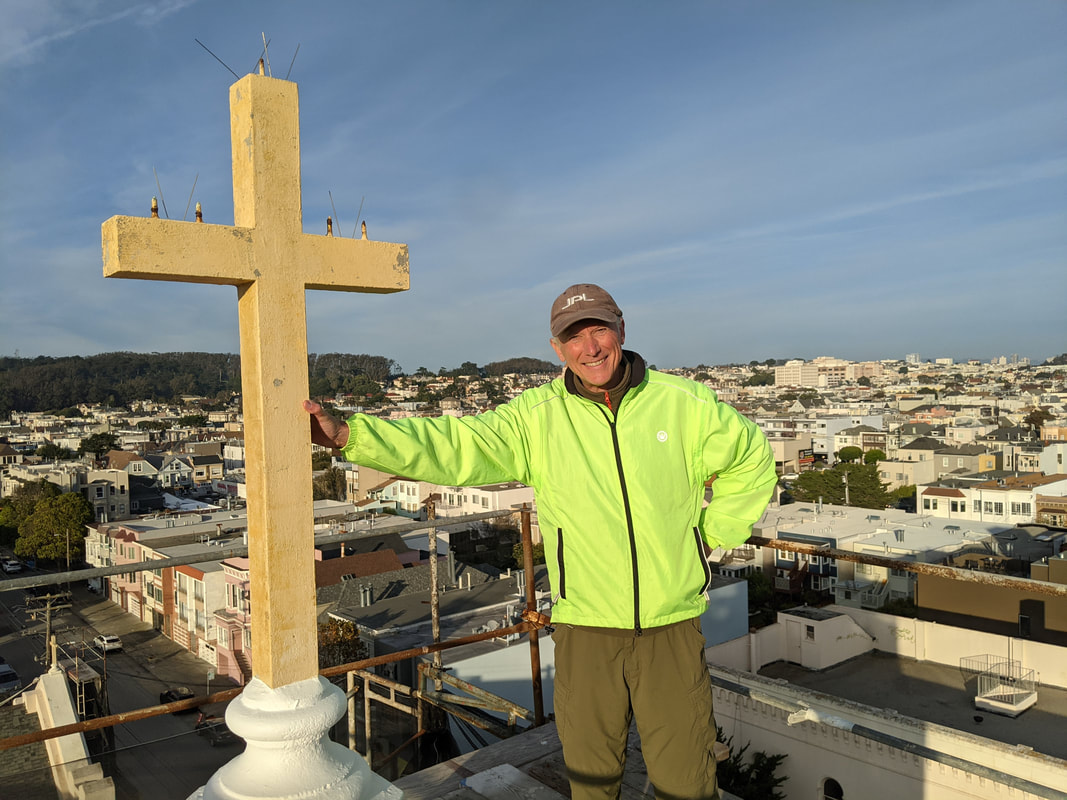We have come to the end, the last Sunday of the liturgical year. Every November the Archbishop offers a Mass for deceased clergy in the mausoleum where the prelates of San Francisco are buried. Afterwards we process to the priest section of Holy Cross Cemetery singing the litany of saints. Some of these men were saints, and some of them were sinners. Some of them were heroes of the faith who built the Church in what used to be one of America’s most Catholic cities, and some of them were criminals who destroyed the faith of children and adults alike, emptying the churches their brothers built up. But all of them are dead, and all of them have been judged by the great High Priest, Christ the King and Supreme Judge of men.
Last year, as he stood before the tombs of San Francisco’s first archbishop, Joseph Alemany, and of San Francisco’s first Cardinal, William Levada, and the other prelates, Archbishop Cordileone gave a striking homily. “It certainly seems,” he said quietly in the echoing halls of the dead, “that we are witnessing the end of life as we have known it, and even the end of the Church as we have known her. But let it not frighten or upset us. Heaven and earth will pass away, says the Lord, but my Word will not pass away.” This week we celebrate Thanksgiving for all that God has given us, and we refrain from complaining about what He has not given us. Most of all we thank God for the gift of eternal life, when the long cycle of seasons, of endings and beginnings, comes to its perfection in those who believe in Him.
Heaven is God’s gift but requires endurance on our part, which St. Paul describes as longanimitas in Latin—long-suffering, literally “to a great length.” Our pilgrimage to heaven is a marathon, not a sprint. “We do not cease praying for you,” he reassures us on as persevere through discouragement, weariness, and scandal. Without doubt the Apostle is praying for us today, as we see the Bark of Peter taking on water at all sides, listing badly to the portside—that is, to the left—apparently sinking. Only he who “perseveres to the end will be saved” Christ warns us. In Latin, the words are permanserit usque ad finem, “stays with him until the end.” We have to make it the finish line—to the day of our death—with our faith intact. In heaven, the Church hierarchy will not be needed, and we will no longer need even the sacraments, because we will have Christ himself. He will bring about full justice, perfect peace and the tranquility of order. But that day has not yet come, and so we must keep working and keep walking, maintaining hope and stamina.
No one knows the time or the exact manner in which the Lord will return, but he describes that day in today’s Gospel in these words: when you will see a desolating abomination in the holy place, you must flee to the mountains. When you see sacrilege, perversion, and crime in your priests, in the sanctuary, you must flee to the “mountain,” taking only your faith. Catholic altars are built on little “mountains,” elevated platforms with three steps to symbolize Calvary. Some of these altars have been desecrated by criminal clergy, but some are still clean. If you see the “desolating abomination” in your holy place—in your parish—flee to a parish that has persevered in purity and right worship. Jesus assures us that had those days not been shortened even the elect would lose their faith. Is it possible that we are entering these times?
Many priests and bishops have abandoned their vocations, although they still wear the garb. Wolves in sheep’s clothing fill the Church. When Pope Benedict took the office of Peter, he asked the Church to pray for him, “that I may not flee for fear of the wolves.” It seems that he did flee, perhaps because we did not pray enough. In the last few years some of even the highest ecclesiastical authorities have been revealed as deceitful and malignant. It is certainly a difficult time for us. But we can and we must persevere in our faith. As Alexander Solzhenitsyn wrote: “Let the lie come into the world, let it even triumph. But not through me.” We cannot reform the Church. Pope Benedict failed, and Pope Francis is failing. But we can remain faithful as individual disciples. Even if our prelates and friends and civil leaders betray the faith, we will not. We will turn ever more fervently to the Mass, to confession, to intense interior lives with Our Lady, holding on desperately until He returns, which He surely will, and sooner than we think. Come, Lord Jesus!



 RSS Feed
RSS Feed